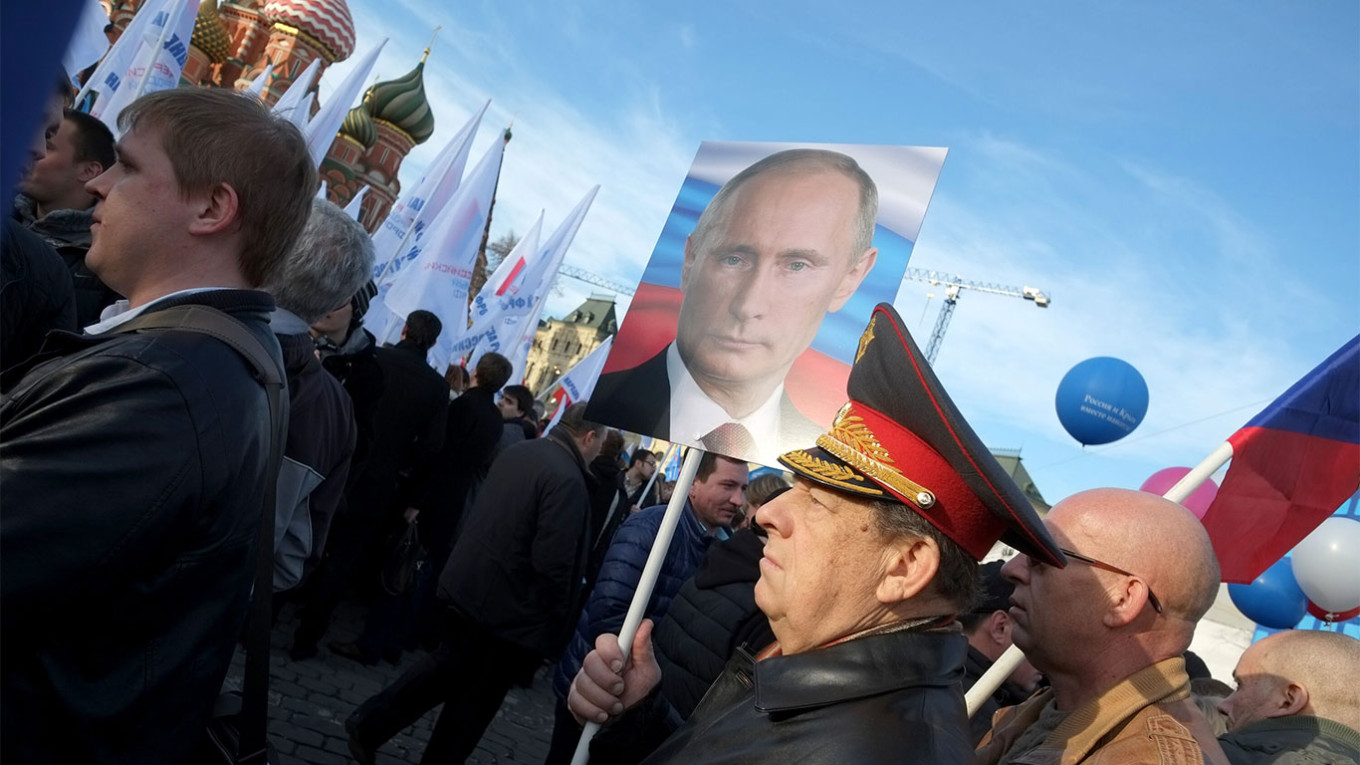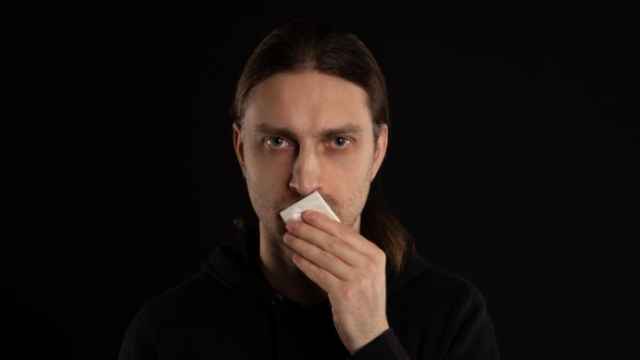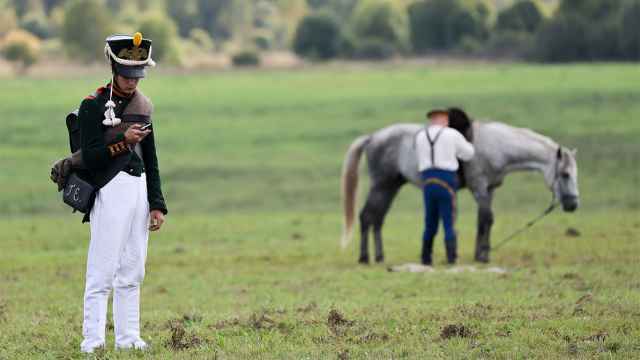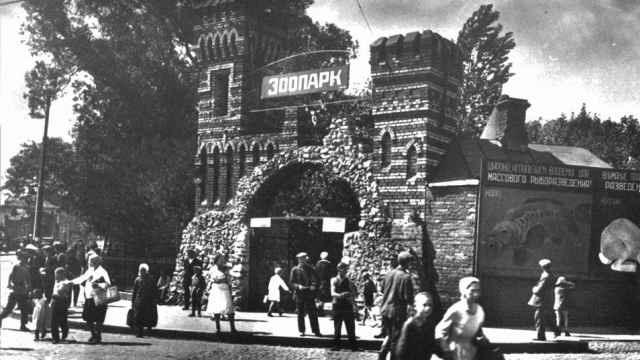Russia goes to the polls next year. President Vladimir Putin, we can be sure, will be elected to serve as Russia’s president until at least 2030.
Some in the opposition desperately hope that another candidate — such as the Communist Party’s Gennady Zyuganov — can unite the anti-Putin vote and mount a genuine challenge to his rule. But that is highly unlikely.
No incumbent in modern Russia has ever lost nor had to accept defeat, let alone allowed a peaceful transfer of power in a fair and transparent election. In contemporary Russian history, leaders have generally either died in office or become incapacitated by ill health. Mikhail Gorbachev and Dmitriy Medvedev are the only exceptions. Only Nikita Khrushchev was removed in a coup of sorts, and even then only on the second attempt.
Assuming Putin stays in power for as long as he is physically able, what will become of democracy in Russia in the future?
A long, tricky road lies ahead for the opposition. Russia’s historical experience of democracy is best understood as one of failed reforms. There have been notable opportunities for the state to relinquish its power and control, whether it be to create a more federative and democratic political system, free press, or more liberal secular culture. Yet every time, most unravelled, or just couldn’t stick.
Previously, those who stopped or reversed democratic reforms were raised in the administrations that enacted them. Many of Russia’s great reformers were not self-professed democrats. Rather, they used the autocracy as their reforming tool. But all of them struggled to reform political systems resistant to change, and many received pushback from Russia’s incredibly ethnically diverse and ideologically polarised society – making things unworkable.
Today, Russian democrats have struggled to shake off negative associations with the late 1980s and 1990s. That has made them unable to make a positive case for their view of Russia’s future. Whenever their next opportunity comes, they will need to convert the apathy of those with no memories of perestroika or Soviet socialism and who barely remember the 1990s into a civic consciousness.
But Russia’s past experience with attempted reform shows neither the opposition nor Putin's successor have an easy road ahead.
Aside from the provisional governments of 1917 and the 1990s, opportunities for sweeping reforms came in the October Manifesto of 1905, the liberal reforms of the 1860s and Catherine the Great’s “instruction” to the nation. Another was during the largely forgotten reign of Fyodor III, who sought Russia’s top-to-bottom modernization in the late 17th century before his untimely death aged just 20; his brother, Peter, forced it on the empire.
Further back is the mythical Novgorod Republic, which functioned like a city-state. Novgorodian princes were elected, unlike the leaders of other centers of Old Rus in Kyiv and Vladimir-Suzdal who inherited their power. Novgorod also had an elected assembly known as the veche. The people could depose the princes almost instantly, and not peacefully, as could bishops and priests.
Many, including the Yeltsin Center educational organization, label Veliky Novgorod Russia’s first democracy. The Slavs of Old Rus, however, didn’t consider Novgorod their own. The area was never Slav territory, but occupied by Finns, and later Norse settlers from whom the name “Rus” derives.
Vladimir-Suzdal and the Kyivan Rus had no democratic assembly or citizen participation. In fact, Russian autocracy as we know it was born in Vladimir. Control of Novgorod was taken by Vladimir’s Grand Princes through marriage or force.
When Alexander Nevsky assumed Novgorod’s throne in 1236, one of his first actions was strip the noblemen of any privileges he considered unjustified such as levying tributes for profit, the ability to depose the prince. The reason? His father was deposed several times by the people of Novgorod.
To the young Nevsky in Pereslavl-Zalesskiy, Novgorodian politics looked messy. By contrast, the autocracy of his prosperous and stable home principality of Vladimir-Suzdal seemed to work. Thus, autocracy became a favored tool for Russia’s leaders when faced with political resistance – though one should point out that most of Europe was governed by autocracies in those days.
The Romanovs all believed in the divine right to rule the “Third Rome” and conquer other territories. Few believed in a free press or democratically elected assembly. Even fewer encouraged a more secular culture beyond the nobility.
The struggle of Catherine the Great to modernize Russia is one such example. She attempted to create Russia’s first constitution through the adoption of new laws and regulations, which were debated and voted for by representatives from all strata of society. It quickly descended into chaos as it became evident that the interests of each group had little in common.
Later, the reign of Alexander II saw notable reforms including reduced censorship, expanding and reforming university education, improving the status of Jews, implementing judicial reform and increasing power to local governments.
But Alexander II’s assassination at the hands of the anti-monarchist People’s Will organization dashed hopes this reformist trend might continue. His son, Alexander III, reversed much of the progress achieved under his father, arguing they sowed division and chaos and spurred terrorism.
His grandson Nicholas II reluctantly agreed to establish the State Duma following the Revolution of 1905, with few advisers believing in legitimate power sharing. Both Nicholas and his father were conservative reactionaries who, although Western-educated and raised, saw Russia as a rightful autocracy and protector of Orthodoxy and Slavs.
More recently, many in both Russia and the West considered Yeltsin to be a more genuine democrat than Gorbachev, who wanted to uphold the Soviet system.
But despite his long history of criticizing the Soviet Union, Yeltsin never took those responsible for its crimes to court. It was obvious why. Yeltsin wanted to avoid replicating the Stalinist show trials and let Russia move forward in a more organic way. Instead, nobody was ever held accountable. This often-forgotten moment might have held democracy back more than we realize.
Yet, Russia’s regions were also key in securing a democratic identity. Following the Soviet collapse, most regional governments were controlled by the illiberal parties, predominantly the Communists. Russia, it seemed, had rejected the new democratic parties that arose. The capitalism they promoted felt cruel and unfair. Today, regional autonomy has been depleted.
By the 1996 election, Yeltsin had an average popularity rating of 4%. But he still won. Years later, many liberals acknowledged huge problems with that election. Journalists confessed to fiercely promoting Yeltsin and smearing Zyuganov, whose victory they feared could end democracy. Some have since changed their mind, and argued Yeltsin’s victory undermined the young democracy. Ironically, Zyuganov might now emerge as their only hope.
It isn’t clear who will succeed Putin. He will, most likely, anoint them towards the very end of his tenure. Whoever it is will need to be someone who can promote loyalty to the state across Russia’s polarized multi-national population, as well as the different political factions in the Kremlin. What is less clear is how Russia’s democratic opposition will respond to this person.
For Russian democracy to have a future, it must directly touch the people who live beyond the Moscow Ring Road. The average life in the capital is vastly different from those who live in Russia’s south, Far East and provincial one-company industrial towns. Many indigenous communities and tiny villages have no paved roads or train stations. Everyone will have to feel an inclusive part of the same democratic civil society. That won’t be easy.
No opposition figure yet commands the popularity and crossover appeal Yeltsin once did. Few exhibit general compassion, empathy, or the ability to offer genuine hope for a future with dignity.
The Russian population, which will want a return to relative socioeconomic stability, will also need to reckon with the legacy of the war in Ukraine. That poses some obvious problems. Those who stayed silent or vocally opposed the war won’t accept the guilt imposed on them for Russia’s actions in Ukraine. Moreover, the descendants of those in power and who fought on the frontline will defend their relatives.
Russia’s future will only be determined by its people — not the wishful thinking of foreigners.
A Message from The Moscow Times:
Dear readers,
We are facing unprecedented challenges. Russia's Prosecutor General's Office has designated The Moscow Times as an "undesirable" organization, criminalizing our work and putting our staff at risk of prosecution. This follows our earlier unjust labeling as a "foreign agent."
These actions are direct attempts to silence independent journalism in Russia. The authorities claim our work "discredits the decisions of the Russian leadership." We see things differently: we strive to provide accurate, unbiased reporting on Russia.
We, the journalists of The Moscow Times, refuse to be silenced. But to continue our work, we need your help.
Your support, no matter how small, makes a world of difference. If you can, please support us monthly starting from just $2. It's quick to set up, and every contribution makes a significant impact.
By supporting The Moscow Times, you're defending open, independent journalism in the face of repression. Thank you for standing with us.
Remind me later.








